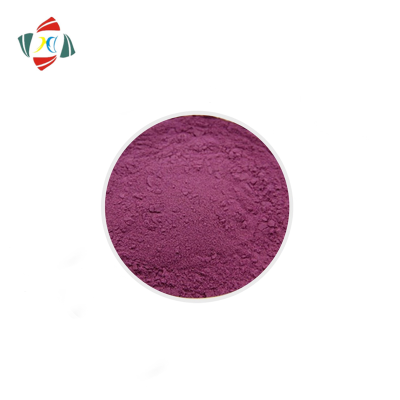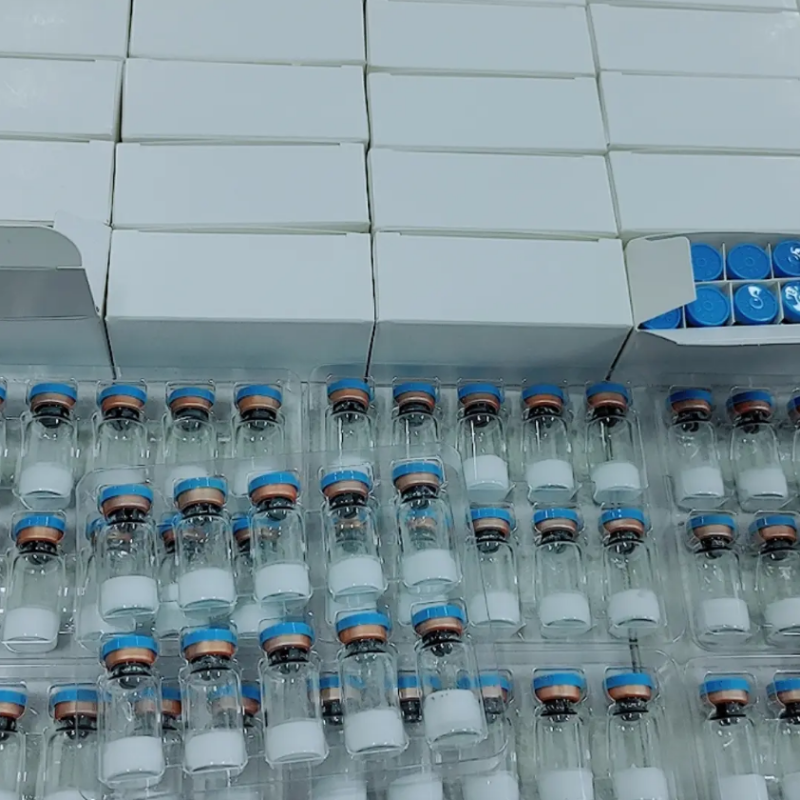-
Categories
-
Pharmaceutical Intermediates
-
Active Pharmaceutical Ingredients
-
Food Additives
- Industrial Coatings
- Agrochemicals
- Dyes and Pigments
- Surfactant
- Flavors and Fragrances
- Chemical Reagents
- Catalyst and Auxiliary
- Natural Products
- Inorganic Chemistry
-
Organic Chemistry
-
Biochemical Engineering
- Analytical Chemistry
- Cosmetic Ingredient
-
Pharmaceutical Intermediates
Promotion
ECHEMI Mall
Wholesale
Weekly Price
Exhibition
News
-
Trade Service
Autoimmune diseases are diseases caused by the body's immune response to its own tissues and organs, and immune attacks on them, resulting in damage to the body's tissues.
Common autoimmune diseases include multiple sclerosis, rheumatoid arthritis, type I diabetes, psoriasis and systemic lupus erythematosus.
In recent years, more and more evidence has shown that the differentiation defect of Th17 cells and the abnormality of IL-17 signaling pathway mediate the occurrence of various autoimmune diseases.
Genome-wide association analysis (GWAS) data show that there is a close relationship between single nucleotide polymorphisms of many genes and susceptibility to autoimmune diseases.
Previous studies have found that the variation of long-chain non-coding RNA (lncRNA) TRAF3IP2-AS1 is related to susceptibility to psoriasis, but the molecular mechanism of this molecule and susceptibility to psoriasis is unclear.
Exploring the molecular mechanisms involved in the occurrence of autoimmune diseases is of great significance for understanding the occurrence of diseases and exploring clues to the treatment of diseases.
On May 6, 2021, the team of Professor Wang Chenhui from the School of Life Sciences of Huazhong University of Science and Technology published a titled: Identification of a Long Noncoding RNA TRAF3IP2-AS1 as Key Regulator of IL-17 Signaling through the SRSF10 in The Journal of Immunology, an authoritative international immunology journal -IRF1-ACT1 Axis in Autoimmune Diseases research paper.
In the human body, the main role of Th17 cells is to fight fungal infections by secreting IL-17.
However, IL-17 is an inflammatory cytokine that can promote inflammation by mediating the activation of IL-17 signaling pathway.
Therefore, the abnormality of IL-17 signaling pathway is closely related to the occurrence and development of a variety of autoimmune diseases.
As an important adaptor protein in the IL-17 signaling pathway, the mutation of TRAF3IP2 (the encoded protein is ACT1) is also closely related to the occurrence of a variety of autoimmune diseases.
According to reports, a single nucleotide variation (rs13210247) in the intron region of the TRAF3IP2 gene is significantly associated with the susceptibility of human psoriasis and psoriatic arthritis.
The mutation is located in the fourth exon region (TRAF3IP2-AS1 A4165G) of the antisense long non-coding RNA TRAF3IP2-AS1 of TRAF3IP2.
In this study, the research team studied the function and variation of TRAF3IP2-AS1.
We found that this long non-coding RNA inhibits the expression of ACT1 transcription factor IRF1 by recruiting SRSF10, thereby down-regulating the level of ACT1 and inhibiting the activation of IL-17 signaling pathway.
At the same time, it was also found that the single nucleotide variant of TRAF3IP2-AS1, rs13210247 (TRAF3IP2-AS1 A4165G), is a gain-of-function variant, which, by enhancing its binding to SRSF10, exerts a greater effect on the expression of ACT1 and the activation of the IL-17 signaling pathway.
Strong inhibitory effect.
In addition, the research team found that mouse lncRNA E130307A14-Rik is a homologous gene of human TRAF3IP2-AS1, which can also inhibit the expression of mouse ACT1 and the activation of IL-17 signaling pathway.
Local injection of lentivirus-expressed E130307A14-Rik or SRSF10 can significantly alleviate the symptoms of psoriasis and experimental autoimmune encephalomyelitis in mice, suggesting that TRAF3IP2-AS1 and SRSF10 can be used as human psoriasis and multiple Potential targets and means for the treatment of sexual sclerosis.
Injection of lentivirus-expressed TRAF3IP2-AS1 or SRSF10 into the AB lateral ventricle can significantly reduce the symptoms of experimental encephalomyelitis and inflammatory cell infiltration in mice.
To sum up, this study not only systematically clarifies the autoimmune diseases mediated by lncRNA TRAF3IP2-AS1 The molecular mechanism of susceptibility further shows that TRAF3IP2-AS1 and SRSF10 can be used as potential targets and therapeutic methods for the treatment of Th17 cell-related autoimmune diseases (such as psoriasis and multiple sclerosis).
It is reported that the research team will try to treat IL-17-related autoimmune diseases through the strategy of delivering TRAF3IP2-AS1 and SRSF10 mRNA in the next step.
He Ruirui, a doctoral student in the School of Life Sciences of Huazhong University of Science and Technology, Ru Gao, a doctoral student, and Dr.
Songfang Wu from the Xuhui Central Hospital of Fudan University are the co-first authors of the paper.
Huazhong University of Science and Technology is the first unit of the thesis.
Professor Wang Yueying from Ruijin Hospital of Shanghai Jiaotong University, Professor Zhang Cunjin from Nanjing University and Professor Wang Chenhui from Huazhong University of Science and Technology are the co-corresponding authors of this article.
This research is supported by the National Natural Science Foundation of China and the Shanghai Natural Science Foundation of China.
Link to the paper:Open for reprinting This article is open for reprinting: Just leave a message in this article and let us know
Common autoimmune diseases include multiple sclerosis, rheumatoid arthritis, type I diabetes, psoriasis and systemic lupus erythematosus.
In recent years, more and more evidence has shown that the differentiation defect of Th17 cells and the abnormality of IL-17 signaling pathway mediate the occurrence of various autoimmune diseases.
Genome-wide association analysis (GWAS) data show that there is a close relationship between single nucleotide polymorphisms of many genes and susceptibility to autoimmune diseases.
Previous studies have found that the variation of long-chain non-coding RNA (lncRNA) TRAF3IP2-AS1 is related to susceptibility to psoriasis, but the molecular mechanism of this molecule and susceptibility to psoriasis is unclear.
Exploring the molecular mechanisms involved in the occurrence of autoimmune diseases is of great significance for understanding the occurrence of diseases and exploring clues to the treatment of diseases.
On May 6, 2021, the team of Professor Wang Chenhui from the School of Life Sciences of Huazhong University of Science and Technology published a titled: Identification of a Long Noncoding RNA TRAF3IP2-AS1 as Key Regulator of IL-17 Signaling through the SRSF10 in The Journal of Immunology, an authoritative international immunology journal -IRF1-ACT1 Axis in Autoimmune Diseases research paper.
In the human body, the main role of Th17 cells is to fight fungal infections by secreting IL-17.
However, IL-17 is an inflammatory cytokine that can promote inflammation by mediating the activation of IL-17 signaling pathway.
Therefore, the abnormality of IL-17 signaling pathway is closely related to the occurrence and development of a variety of autoimmune diseases.
As an important adaptor protein in the IL-17 signaling pathway, the mutation of TRAF3IP2 (the encoded protein is ACT1) is also closely related to the occurrence of a variety of autoimmune diseases.
According to reports, a single nucleotide variation (rs13210247) in the intron region of the TRAF3IP2 gene is significantly associated with the susceptibility of human psoriasis and psoriatic arthritis.
The mutation is located in the fourth exon region (TRAF3IP2-AS1 A4165G) of the antisense long non-coding RNA TRAF3IP2-AS1 of TRAF3IP2.
In this study, the research team studied the function and variation of TRAF3IP2-AS1.
We found that this long non-coding RNA inhibits the expression of ACT1 transcription factor IRF1 by recruiting SRSF10, thereby down-regulating the level of ACT1 and inhibiting the activation of IL-17 signaling pathway.
At the same time, it was also found that the single nucleotide variant of TRAF3IP2-AS1, rs13210247 (TRAF3IP2-AS1 A4165G), is a gain-of-function variant, which, by enhancing its binding to SRSF10, exerts a greater effect on the expression of ACT1 and the activation of the IL-17 signaling pathway.
Strong inhibitory effect.
In addition, the research team found that mouse lncRNA E130307A14-Rik is a homologous gene of human TRAF3IP2-AS1, which can also inhibit the expression of mouse ACT1 and the activation of IL-17 signaling pathway.
Local injection of lentivirus-expressed E130307A14-Rik or SRSF10 can significantly alleviate the symptoms of psoriasis and experimental autoimmune encephalomyelitis in mice, suggesting that TRAF3IP2-AS1 and SRSF10 can be used as human psoriasis and multiple Potential targets and means for the treatment of sexual sclerosis.
Injection of lentivirus-expressed TRAF3IP2-AS1 or SRSF10 into the AB lateral ventricle can significantly reduce the symptoms of experimental encephalomyelitis and inflammatory cell infiltration in mice.
To sum up, this study not only systematically clarifies the autoimmune diseases mediated by lncRNA TRAF3IP2-AS1 The molecular mechanism of susceptibility further shows that TRAF3IP2-AS1 and SRSF10 can be used as potential targets and therapeutic methods for the treatment of Th17 cell-related autoimmune diseases (such as psoriasis and multiple sclerosis).
It is reported that the research team will try to treat IL-17-related autoimmune diseases through the strategy of delivering TRAF3IP2-AS1 and SRSF10 mRNA in the next step.
He Ruirui, a doctoral student in the School of Life Sciences of Huazhong University of Science and Technology, Ru Gao, a doctoral student, and Dr.
Songfang Wu from the Xuhui Central Hospital of Fudan University are the co-first authors of the paper.
Huazhong University of Science and Technology is the first unit of the thesis.
Professor Wang Yueying from Ruijin Hospital of Shanghai Jiaotong University, Professor Zhang Cunjin from Nanjing University and Professor Wang Chenhui from Huazhong University of Science and Technology are the co-corresponding authors of this article.
This research is supported by the National Natural Science Foundation of China and the Shanghai Natural Science Foundation of China.
Link to the paper:Open for reprinting This article is open for reprinting: Just leave a message in this article and let us know







